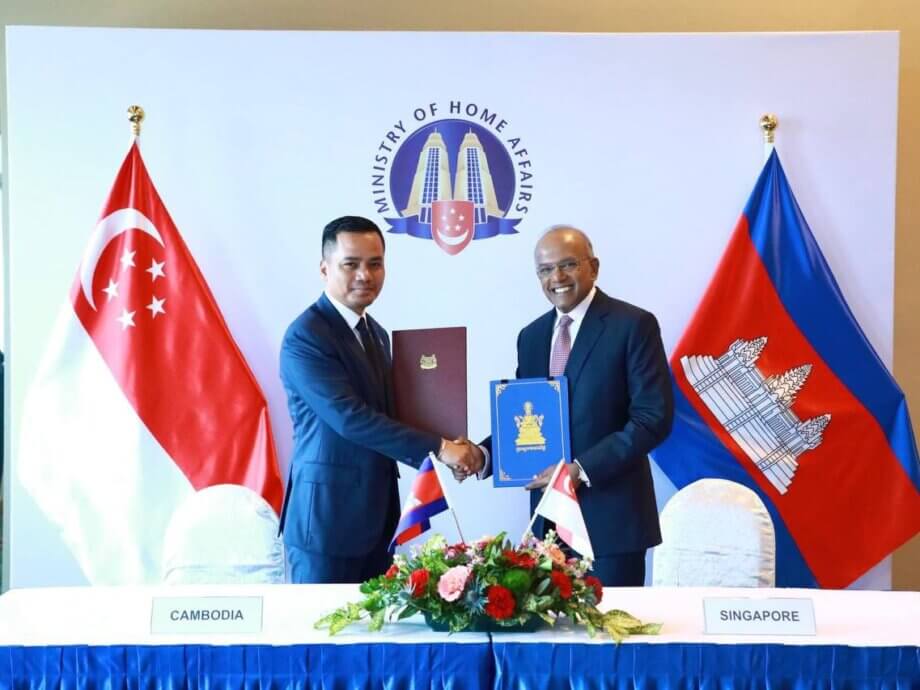Cambodia and Singapore Forge Landmark Pact to Combat Transnational Crime
Cambodia and Singapore have entered into a landmark agreement which aims to tackle the growing threat of transnational crimes head on. This new partnership marks a significant step forward in regional cooperation, as both nations seek to address the complex challenges posed by cross-border criminal activities in Southeast Asia.
- Cambodia and Singapore Forge Landmark Pact to Combat Transnational Crime
- What Does the Agreement Entail?
- Why Is Transnational Crime a Growing Concern in Southeast Asia?
- How Will the Agreement Be Implemented?
- Broader Implications for Regional Security
- Looking Ahead: The Future of Cambodia-Singapore Cooperation
- In Summary
Transnational crime, which includes offenses such as human trafficking, drug smuggling, cybercrime, and money laundering, has become an increasingly pressing issue in the region. The agreement between Cambodia and Singapore is designed to strengthen law enforcement collaboration, improve information sharing, and enhance joint operations to disrupt criminal networks that operate across national borders.
What Does the Agreement Entail?
The memorandum of understanding (MoU) signed by Cambodia and Singapore covers a broad range of transnational crimes. According to official statements from both governments, the agreement will facilitate closer cooperation between their respective law enforcement agencies, including the sharing of intelligence, best practices, and technical expertise.
Key areas of focus include:
- Combating human trafficking and migrant smuggling
- Countering drug trafficking and organized crime
- Addressing cybercrime and financial crimes such as money laundering
- Enhancing capacity building and training for law enforcement personnel
Officials from both countries have emphasized the importance of this agreement in light of the evolving tactics used by criminal organizations. As criminal networks become more sophisticated and exploit technological advancements, regional cooperation is seen as essential to effectively counter these threats.
Statements from Leaders and Law Enforcement
During the signing ceremony, senior officials from Cambodia and Singapore highlighted the significance of the agreement. Singapore’s Minister for Home Affairs, K. Shanmugam, stated:
“Transnational crime knows no borders. By working together, we can better protect our citizens and uphold the rule of law in our region.”
His Cambodian counterpart, Sar Kheng, echoed these sentiments, noting that the partnership would help both countries respond more effectively to emerging criminal threats.
Why Is Transnational Crime a Growing Concern in Southeast Asia?
Southeast Asia has long been a hotspot for various forms of transnational crime. The region’s porous borders, rapid economic growth, and increasing connectivity have created opportunities for criminal organizations to expand their operations. Human trafficking, in particular, remains a persistent problem, with vulnerable populations often exploited for forced labor or sexual exploitation.
Drug trafficking is another major issue, with Southeast Asia’s Golden Triangle (the area where the borders of Thailand, Laos, and Myanmar meet) being one of the world’s largest sources of illicit drugs. Criminal syndicates use sophisticated networks to move narcotics across borders, often evading law enforcement through bribery, corruption, and the use of technology.
Cybercrime has also emerged as a significant threat, as criminals exploit digital platforms to conduct scams, steal personal data, and launder money. The COVID-19 pandemic accelerated the shift to online activities, further increasing the risk of cyber-enabled crimes.
The Role of Regional Organizations
Organizations such as the Association of Southeast Asian Nations (ASEAN) have played a key role in promoting regional cooperation against transnational crime. The ASEAN Ministerial Meeting on Transnational Crime (AMMTC) provides a platform for member states to coordinate their efforts and develop joint strategies.
The Cambodia-Singapore agreement aligns with broader ASEAN initiatives, reinforcing the commitment of both countries to regional security and stability.
How Will the Agreement Be Implemented?
Implementation of the agreement will involve regular meetings between law enforcement agencies, joint training programs, and the establishment of secure channels for information exchange. Both countries have pledged to respect each other’s legal frameworks and sovereignty while working together to achieve common goals.
Experts believe that the success of the agreement will depend on the willingness of both parties to share sensitive information and coordinate operations in real time. Trust and mutual respect are seen as critical factors in building an effective partnership.
Potential Challenges and Opportunities
While the agreement represents a positive step forward, there are challenges to be addressed. Differences in legal systems, language barriers, and varying levels of technological capability can hinder cooperation. However, the commitment to capacity building and training is expected to help bridge these gaps.
There are also significant opportunities for both countries to benefit from the partnership. By pooling resources and expertise, Cambodia and Singapore can enhance their ability to detect and disrupt criminal activities, protect their citizens, and contribute to regional security.
Broader Implications for Regional Security
The Cambodia-Singapore agreement is likely to have a ripple effect across Southeast Asia. As other countries observe the benefits of enhanced bilateral cooperation, similar agreements may be pursued to strengthen the region’s collective response to transnational crime.
International organizations, including Interpol and the United Nations Office on Drugs and Crime (UNODC), have welcomed the agreement as a model for cross-border collaboration. In a statement, a UNODC representative said:
“Effective partnerships between countries are essential to dismantle transnational criminal networks and ensure the safety and security of communities.”
Such partnerships are particularly important in a region where criminal organizations often exploit jurisdictional loopholes and weak enforcement mechanisms.
Impact on the Business and Investment Climate
Transnational crime not only threatens public safety but also undermines economic development and investor confidence. By taking decisive action to combat these threats, Cambodia and Singapore are sending a strong signal to the international community that they are committed to upholding the rule of law and creating a secure environment for business and investment.
Improved law enforcement cooperation can help reduce the risks associated with corruption, fraud, and other forms of economic crime, making the region more attractive to foreign investors.
Looking Ahead: The Future of Cambodia-Singapore Cooperation
The signing of the transnational crime agreement is expected to pave the way for deeper collaboration between Cambodia and Singapore in other areas, such as counterterrorism, border security, and disaster response. Both countries have expressed their intention to build on this foundation and explore new avenues for partnership.
As the nature of transnational crime continues to evolve, ongoing dialogue and adaptation will be necessary to stay ahead of emerging threats. The Cambodia-Singapore agreement demonstrates the value of proactive, forward-looking approaches to regional security challenges.
In Summary
- Cambodia and Singapore have signed a landmark agreement to combat transnational crime
- The agreement focuses on cooperation in areas such as human trafficking, drug smuggling, cybercrime, and money laundering
- Implementation will involve joint training, information sharing, and coordinated law enforcement operations
- The partnership aligns with broader ASEAN efforts to address regional security challenges
- Experts see the agreement as a model for future cross-border cooperation in Southeast Asia












